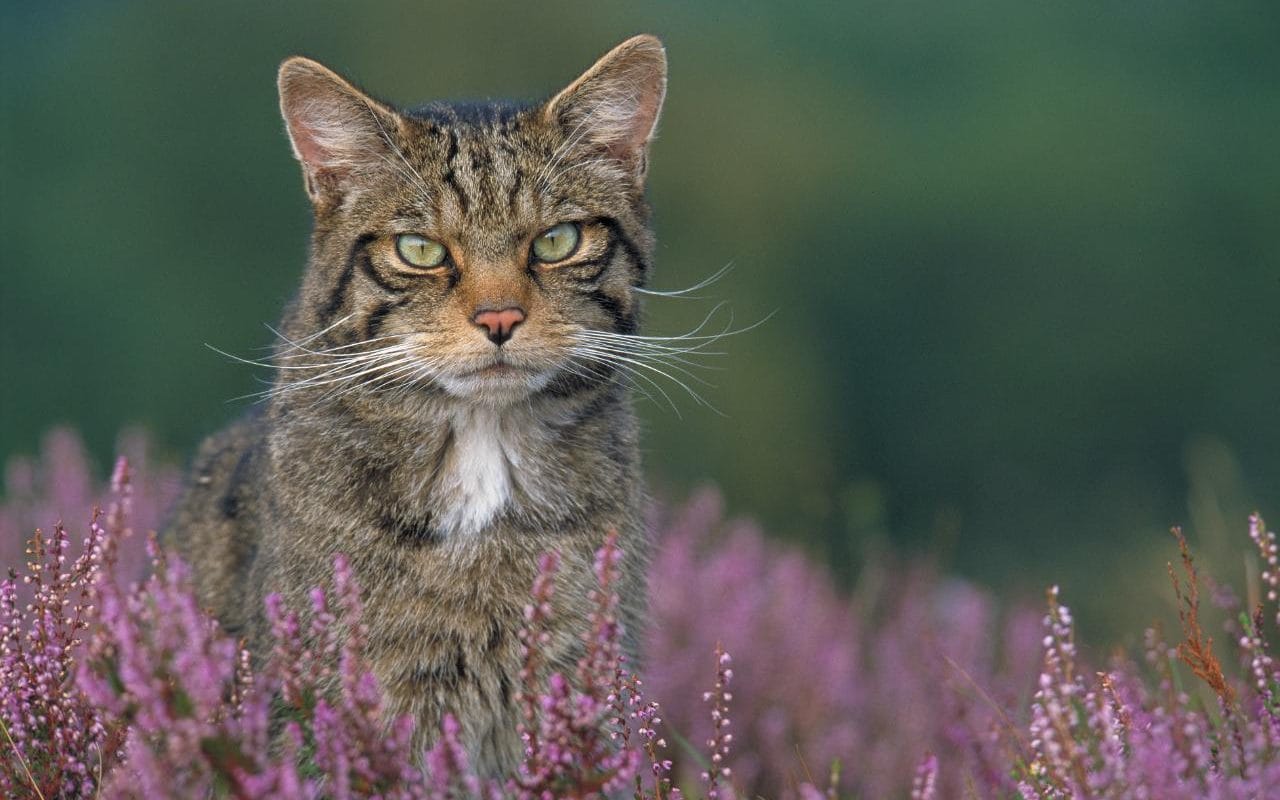English financier and environmentalist Ben Goldsmith who is helping to fund the project said: “We have a moral duty to put right the wrongs that we’ve perpetrated in the past.”
“Wildcats are a keystone species and an important predator in the system. If you lose predators from an ecosystem you create imbalance and ecosystems don’t function correctly,” said Mr Goldsmith, who is also an adviser to Michael Gove and the Department for Environment, Food and Rural Affairs (Defra).
The typical British wildcat is similar in appearance to a domestic cat but they are larger with a wider face and jaw. They have well-defined brown and black stripes and a bushy tail.
The species is listed as critically endangered in Scotland.
At the end of last year a major study found that the Scottish population had interbred with domestic cats so much that they shared the same gene pool and were therefore “functionally extinct” in the wild.
There are about 100 wildcats in captivity in the UK with stronger wildcat genes.
“Most of the wild cats are complex hybrids of domestic cats and the only way we’re going to save these cats from extinction is to start breeding them,” said Mr Gow, who got his cats from a zoo in February. They are already in enclosures but without access to their natural environment.
“The best habitats are in southern England. At the end of the day, wildcats are meant to be here,” he said.
“Hybridisation doesn’t occur when you have a healthy population of wild cats,” according to Mr Goldsmith. He said Scottish wildcats hybridised with domestic cats because the population was so weak.
A Defra spokesperson said: “The movement and release of any species in England, including wildcat, should follow the International Union for Conservation of Nature guidelines.
“These guidelines ensure there are clear environmental and socioeconomic benefits to gain from releasing the animals and that their welfare is maintained.”
A National Farmers’ Union spokesperson said the potential effects of reintroducing a species needs to be fully understood before these animals are released.
“Any species introduction, particularly if it has been absent from this country for many decades or even centuries, can have massive impacts on the many benefits that the countryside and farming delivers. The landscape could be very different and this poses potential risks,” the spokesperson said.













Comment